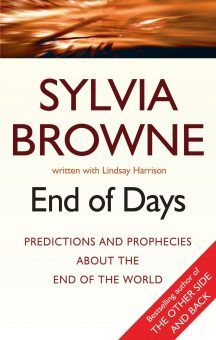During Joel’s time, between 835 and 800 BC, the southern area of Canaan, called Judah, had been devastated by locusts, which ate the sparse crops. The plague of locusts was followed by a severe drought, prompting Joel to speak out to an omnipotent God who was ultimately in charge and responsible for all that happens.
The explanation Joel received for this disastrous succession of hardships was that the nation was receiving divine judgment for its sins. He symbolically described the locusts as a marching human army and goes on to one of his prophecies in Joel 1:13-14 and Joel 2:1-2:
Lament, O priests, wail, O ministers of the altar … Call a solemn assembly … Gather the elders to the house of the Lord your God and cry to the Lord; for unless they change their ways, the enemy armies will devour the land as did the natural elements. Awake, you drunkards, and weep!
Alas for the day of the Lord! For the day of the Lord is near, and as destruction from the Almighty it comes … Let all the inhabitants of the land tremble, for the day of the Lord is coming … a day of darkness and gloom, a day of clouds and thick darkness.
Like most prophetic writings, Joel’s offer a word of hope:
“Yet even now,” says the Lord, “return to me with all your heart, with fasting, with weeping and with mourning; and rend your hearts, not your garments.” Return to the Lord, your God, for He is gracious and merciful, slow to anger, and abounding in steadfast love, and repents of evil. (Joel 2:12-13)
Following Jesus’s days on Earth, after the feast of Pentecost at which the spirit of Jesus was manifested, the disciple Peter quoted from Joel 2:28-32 in Acts 2:17-21:
And in the last days it shall be, God declares, that I will pour out my Spirit upon all flesh, and your sons and your daughters shall prophesy. And your young men shall see visions, and your old men shall dream dreams … I will pour out my Spirit and they shall prophesy, and I will show wonders in the heaven above and signs on the earth beneath, blood, and fire, and vapor of smoke; the sun shall be turned into darkness and the moon into blood, before the day of the Lord comes, the great and manifest day. And it shall be that whoever calls on the name of the Lord shall be saved.
According to Judaism, the coming of the messiah and the divine worldwide era of peace, joy, and spiritual purity will by definition be preceded by unspeakable suffering. It’s understandable, then, that many Jewish leaders have suggested that the Godless, obscene persecution of the Jews during the Holocaust might be historically perceived as the early dawn of the messiah’s impending arrival.
Catholicism
While Catholics see no value in trying to predict the date or year of the end of days, take it from a woman who was raised in a Catholic school and once had her heart set on becoming a nun, they most definitely believe in the end-time and its biblically designated sequence of events:
- The Resurrection of the Dead
The Catholic Church believes in not only a resurrection of the spirit but a resurrection of the body as well, as specified in the Apostles’ Creed:
I believe in God, the Father Almighty,
the Creator of heaven and earth,
and in Jesus Christ, His only Son, our Lord,
Who was conceived of the Holy Spirit,
born of the Virgin Mary,
suffered under Pontius Pilate,
was crucified, died and was buried.
He descended into hell.
The third day He arose again from the dead.
He ascended into heaven
and sits at the right hand of God the Father Almighty,
Pages: 1 2 3 4 5 6 7 8 9 10 11 12 13 14 15 16 17 18 19 20 21 22 23 24 25 26 27 28 29 30 31 32 33 34 35 36 37 38 39 40 41 42 43 44 45 46 47 48 49 50 51 52 53 54 55 56 57 58 59 60 61 62 63 64 65 66 67 68 69 70 71 72 73 74 75 76 77 78 79 80 81 82 83 84 85 86 87 88 89 90 91 92 93 94 95 96 97 98 99 100 101 102 103 104 105 106 107 108 109 110 111 112 113 114 115 116 117 118 119 120




